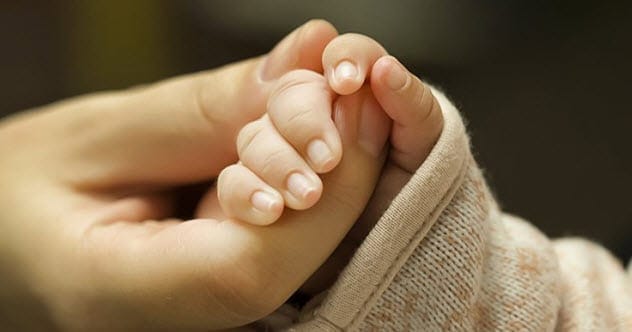When someone takes another person’s life, society immediately tries to understand why. We look closely at their actions and beliefs, hoping to find answers. Often, the search for reasons leads back to their childhood and upbringing. In many murder cases, the offender was raised by a mother figure, for better or worse.
Some mothers did their absolute best to raise a child in a loving home. Others seemed to make their children’s lives incredibly difficult. While the debate of nature versus nurture is complex, it’s hard not to want to know more about these women. They raised individuals who committed the ultimate crime: ending a human life. Here are stories of mothers who faced this unimaginable reality.
1 Diana Amanda Chism
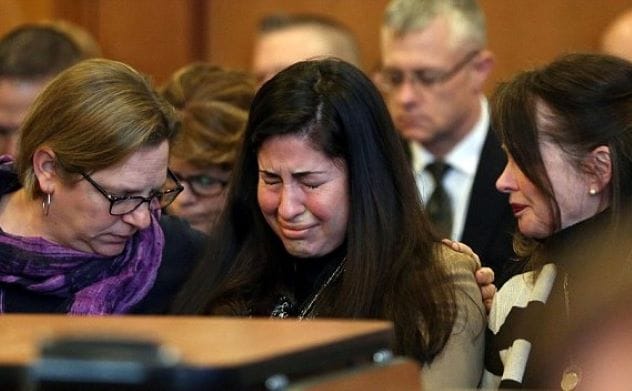
Diana Chism’s feelings about her son Philip seemed to change when she spoke with police. At first, she described him as a good kid. Later, she admitted that a family history of mental illness made her believe he could “snap.” And he did, tragically, when he murdered and raped his 24-year-old high school math teacher. Diana also shared that a mother sometimes sees warning signs in her children but doesn’t act on them.
During questioning, she offered to help police get information from Philip but then insisted he have a lawyer, which was his right. It seems she felt she might have missed a chance to step in when Philip’s behavior became unusual. Hindsight, of course, often brings clarity. Diana has publicly apologized to the victim’s family and asks for prayers for her son.
2 Louise Bundy
If you know about serial killers, you’ve likely heard of Ted Bundy. His mother, Louise, however, is less famous, even though she publicly stated her son was innocent for many years. While Ted was in prison, he talked about various childhood traumas, though some remain unproven. One true story that emerged was that he learned at a young age that the woman he thought was his sister was actually his mother. This could have deeply affected him.
Louise stood by Ted, convinced he was innocent, until he confessed right before his execution – likely a last-ditch effort to delay it. One can only imagine how she felt when he finally admitted to his horrifying crimes.
3 Lori Knoble
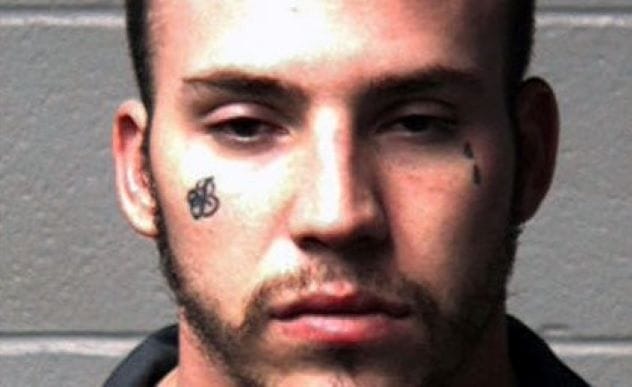
Not every mother reacts with denial or unwavering support. Lori Knoble felt physically ill when her son, Jeffrey Knoble, confessed to murdering someone. He even showed her a photo of the bloody, naked body of his friend, Andrew “Beep” White, and verbally admitted to the brutal killing.
Unlike Louise Bundy, Lori did not try to shield her son from the law. In a courageous and difficult move, she turned him in to the police. Later, she testified against him in court, a decision that surely contributed to his conviction. Jeffrey was found guilty of first-degree murder and received a life sentence without parole. For Lori, it seems justice for the victim outweighed her maternal bond.
4 Kathleen Dennehy
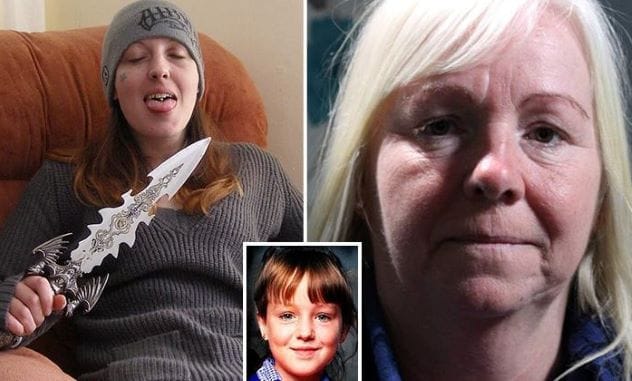
Kathleen Dennehy is convinced that the loving, sweet child she once knew is gone. She has expressed relief that her daughter, Joanna Dennehy, a convicted serial murderer, is behind bars serving a life sentence. Kathleen remembers Joanna as a quiet, empathetic child who valued all life, even getting upset if she accidentally stepped on an insect. It’s a stark contrast to the woman Joanna became.
At 30 years old, Joanna went on a violent killing spree, murdering three men. Two other men were attacked but luckily survived. Interestingly, Joanna claimed she targeted men because she could never hurt a woman, especially one with children. Her mother believes drugs and deviant behavior fueled Joanna’s violence, leaving Kathleen heartbroken. The primary cause, however, was likely Joanna’s diagnosed mental illnesses, including psychopathic and antisocial disorders. Kathleen feels the person her daughter once was no longer exists, and the exact turning point remains unclear.
5 Rosita Donaldson
Rosita Donaldson went to great lengths to protect her son, Howell Emanuel Donaldson III. She spent four months under house arrest after refusing to answer prosecutors’ questions about Howell, who was suspected of killing four people. Eventually, she and her husband provided the police with the information they sought, leading to Howell’s arrest.
Rosita admitted that neither she nor her husband could give Howell an alibi for the times of the murders. She also argued against an insanity plea for him, stating there was no history of mental illness in their family. Despite her initial attempts to shield him, the truth ultimately came out. Rosita and her husband continue to stand by their son, helping him cope with life in prison, which has reportedly been challenging for his mental health.
6 Lillian Graham
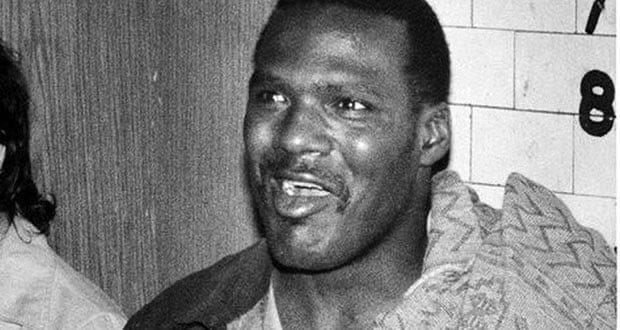
After a seven-day manhunt for her son, Harrison, Lillian Graham waited with him for the police so he could turn himself in. He was accused of seven counts of murder after seven bodies were discovered in his apartment, some dismembered. Despite being present when he was taken into custody, Lillian has consistently maintained her son’s innocence.
She even pleaded with the sentencing judge to spare Harrison’s life. Lillian still denies his guilt in the strangulation deaths of the women and wishes for her son’s freedom. Originally sentenced to death, his sentence was later changed to life in prison. It remains uncertain whether Lillian truly believes her son is innocent or if she is in deep denial about her child’s capacity for such horrific acts.
7 Regina Tague
There isn’t a lot of public information about Regina Tague herself, as she passed away in 2017. However, she was the mother of Todd Kohlhepp, a man who murdered seven people. Sometimes, when children who seem “normal” develop violent personality changes, it can be linked to an early head injury. While there’s no proof of this in Todd’s case, it does make one wonder.
Before her death, Regina was involved in a wrongful death lawsuit filed by the family of one of her son’s victims. In a grim turn of events that added further pain to the victims’ families, Todd Kohlhepp pleaded guilty to all charges and received seven consecutive life sentences. It might be considered a small mercy that Regina did not live to see this outcome and fully face the reality of her son’s monstrous actions.
8 Joyce Flint
Much has been written about the infamous Jeffrey Dahmer, who was sentenced to seventeen life terms for murdering seventeen young men. His life ended in 1994 when a fellow inmate killed him. Joyce Flint was Jeffrey’s mother, giving birth to him in May 1960. Reports suggest he was a normal, happy child until a hernia surgery at age four. After the operation, he reportedly became distant, leading some to believe the surgery might have played a role in a mental shift that contributed to his later crimes.
In a bizarre turn after Jeffrey’s death, a legal battle erupted between Joyce and Jeffrey’s father. The dispute was over Jeffrey’s brain. His father wanted it cremated, as per Jeffrey’s will, but Joyce fought to preserve it for research purposes. Ultimately, Jeffrey’s wishes were honored, and his ashes were divided between his parents. It might have been scientifically interesting to study Dahmer’s brain for physiological clues to his behavior, but now, the world will never know.
9 Amy Roof
Amy Roof literally suffered a broken heart when she learned about her son Dylann’s horrific actions. Dylann shot and killed nine people during a Bible study at a church. The mass murder was racially motivated, and the details were too much for Amy to bear. She collapsed in the courtroom and repeatedly apologized for the disruption. At the hospital, it was discovered she had suffered a heart attack.
Amy’s exact stance on her son’s case isn’t entirely clear, but she has been heard advising him to get a good defense team and to behave himself in court. Dylann, in contrast, seemed to treat the trial with little seriousness and was reportedly heard joking about the possibility of a death sentence. He stated his goal was to start a race war. It’s believed Amy is deeply torn between her maternal instinct to support her son and her disgust at his terrible crimes.
10 Sue Klebold
Perhaps one of the most well-known mothers on this list, Sue Klebold has given many interviews about her experience. Her son, Dylan Klebold, along with a partner, committed one of the most infamous mass shootings in history at Columbine High School, killing 15 people (including themselves). Two books have been written about her, and she also wrote a memoir detailing her journey after the tragedy.
Sue has publicly admitted that she missed the warning signs that eventually led Dylan to participate in the massacre. She remembers him as a loving kid, but his behavior changed during his high school years. Since the shooting, Sue has become an advocate for mental health awareness and suicide prevention. All proceeds from her memoir go to related charities. She dedicates her time to understanding what she could have done differently and works to prevent similar tragedies from happening to other families.
11 Kathy Grieveson
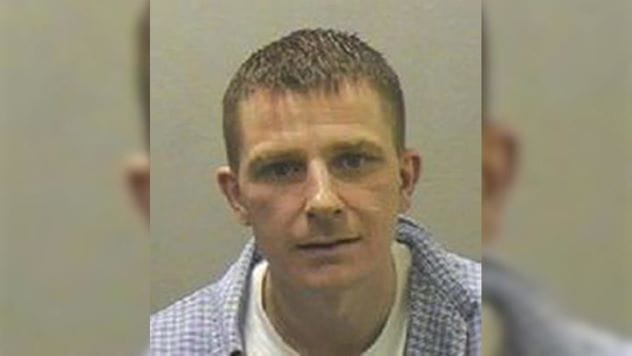
While a mother’s love for her child is a powerful force, Kathy Grieveson’s devotion might seem extreme to many. Even after her son Steven was convicted of strangling and burning three teenage boys, she continues to speak about him in an almost affectionate way. She describes him as having always been—and still being—a “momma’s boy.” According to her, his horrific crimes were merely him getting into “mischief.”
This description starkly downplays the severity of his actions. While standing by one’s child is understandable to a degree, completely denying the facts presented during a trial can be deeply hurtful to the victims’ families. Steven appears to be a man only his mother could continue to defend in such a manner. Kathy’s denial is a painful affront to those who suffered from her son’s violence, but she remains steadfast in her support for her child.
The stories of these mothers are complex and heart-wrenching. They showcase a wide range of human reactions when faced with the unthinkable reality that their child has taken human lives. From denial and unwavering support to turning their children in, profound grief, and even advocacy, their experiences are a somber reminder of the far-reaching impact of violent crime.
These situations are incredibly difficult to comprehend. What are your thoughts on these mothers’ stories? Share your perspective respectfully in the comments below.


